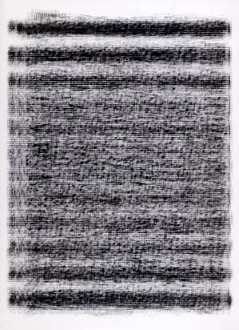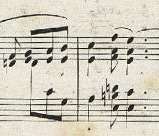As I started working on Morton Feldman's For Christian Wolff, I aimed to learn the notated rhythms accurately. The published score is a reproduction of Feldman's handwriting. Some things puzzled me. There are a few measures that don't add up to the expected number of beats (mistakes?). (The top staff is the flute part. The lower staff is the keyboard part: notes with stems up, played by the keyboardist's right hand on the piano, notes with … [Read more...]
Don’t Ask
When I was learning William Duckworth's The Time Curve Preludes, and even preparing to record the first dozen, I did not contact the composer. I didn't play for him, get advice, or even ask him questions about 2 or 3 notes that puzzled me in the printed music, a reproduction of Duckworth's handwriting. After the recording was released, I got an email from Bill, "I understand you've been playing my music..." Classical players usually seek out … [Read more...]
Used Up — or Barely Begun?
Is the most famous classical music so familiar, so often performed, that it's worn out? I've listened to Beethoven's "Appassionata" so frequently that it's rather difficult for me to hear the music, to accurately sense the real sound patterns being made on a particular occasion. (The mind slips into a "this-is-how-it-goes" mode that dulls perception.) Are icons like the Fifth Symphony or the opening of Carl Orff's Carmina Burana being used up as … [Read more...]
Police witness
In U.S. criminal trials, juries are instructed that testimony given by police officers is no more or less reliable than testimony given by other witnesses. It has to be scrutinized. After Foucault, it seems absurd that in classical music we might still be so obsessed with "what the Composer wanted." Idris Khan: every ... stave of Frederick Chopin's Nocturnes for the piano We have texts. Texts that can be read variously, can be entered … [Read more...]




